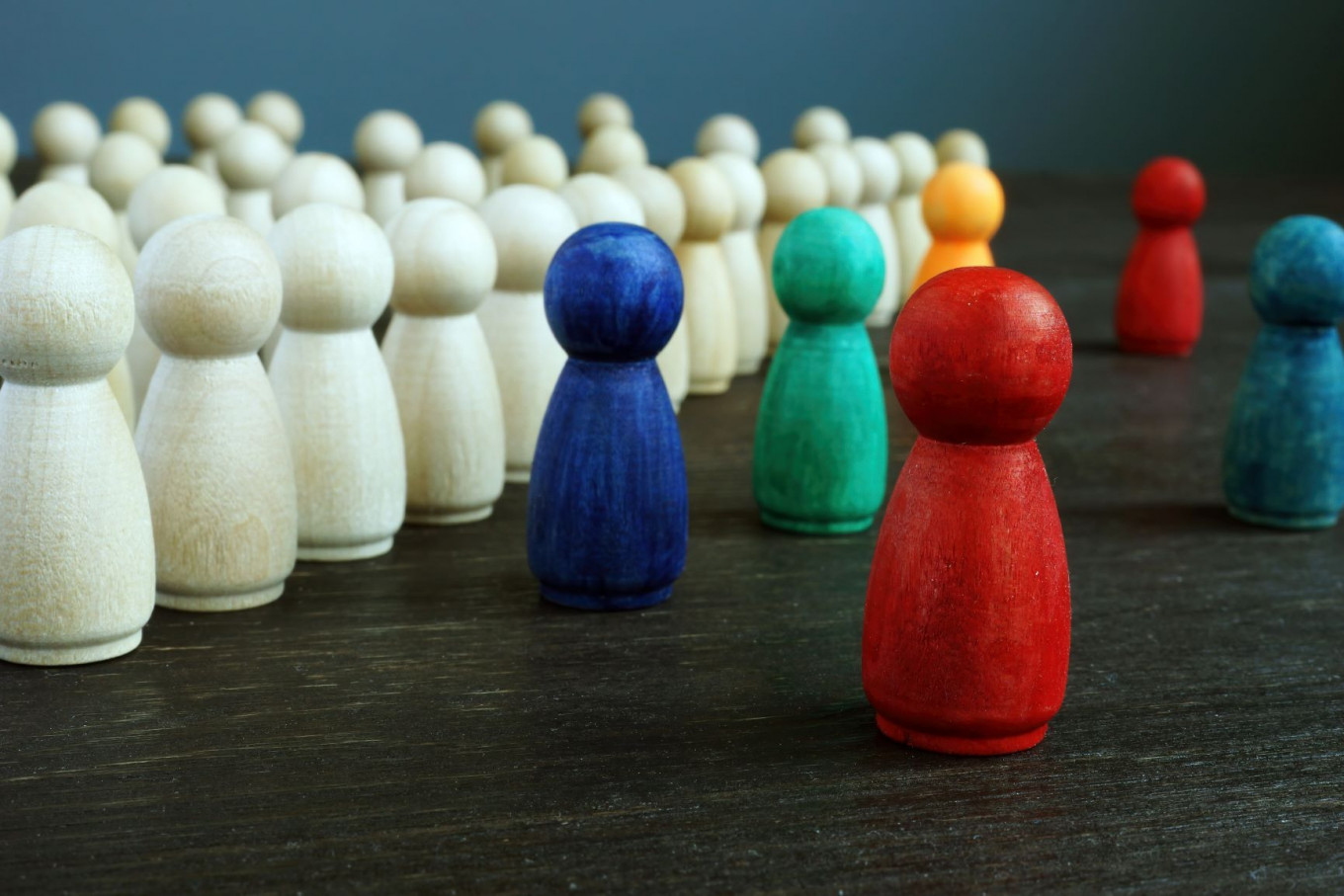Popular Reads
Top Results
Can't find what you're looking for?
View all search resultsPopular Reads
Top Results
Can't find what you're looking for?
View all search resultsFulfilling civil rights of sexual minority group
The media has participated in, hence justified, the act of intolerance committed by the authorities.
Change text size
Gift Premium Articles
to Anyone
S
haring happy moments on social media is fun. Positive responses and congratulations add to the merriment. But that’s not the case for Suriya Koedsang. His happy wedding photo he posted on social media resulted in bullying, even threats, because of his same-sex marriage. The wave of hateful responses came not from his own country, Thailand, but from Indonesian netizens.
What is wrong with Suriya? The wedding ceremony took place at his own home and was attended by his family members and close friends. Moreover, the event occurred in a country that recognizes same-sex marriage. Why were Indonesian netizens inflamed?
Discrimination against the lesbian, gay, bisexual, transgender, intersex and queer (LGBTIQ) community is rampant in Indonesia, the world’s largest predominantly Muslim nation. In September 2020, for example, police arrested 56 people in an apartment in Kuningan, South Jakarta for allegedly holding a gay party. It seems gays are legally prohibited from partying in this country.
The media has exacerbated the stigma on the LGBT community by reporting the arrest in an unfair manner by giving no space to the people arrested to speak out. In doing so, the media has participated in, hence justified, the act of intolerance committed by the authorities.
In one of its serial reports related to the gay party, the country’s biggest news portal, detik.com, blasted video footage entitled "This is what the initiator of ‘hot space’ gay party looks like".
How much hatred and hostility do Indonesians have against LGBTIQ people? Is there any hope for the minority group to live and enjoy rights like other citizens?
At the end of 2019, the Attorney General's Office (AGO) announced a ban on LGBTIQ people from its recruitment of new employees. This discriminatory policy quickly generated public protests, one of them from the Gerindra Party, one of the largest political parties in the country.
On its official Twitter account, the party states: "Dear @KejaksaanRI, we do not agree with the Attorney General Office's decision to reject applicants for employment in the civil service with LGBT sexual orientation. #SuaraGerindra".
Although party officials later denied supporting the LGBTIQ community, they very clearly supported equal civil rights for LGBTIQ people. That the support comes from a major political party is interesting, let alone because it is also known for its close ties with conservative Islamic groups.
The support from a large mass-based political party should imply one thing, that the movement to fulfill the civil rights for LGBTIQ people is starting to gain influence in society. The narratives of civil rights and equality are beginning to become an accepted and understood lingo.
Saiful Mujani Research and Consulting (SMRC) through a public opinion survey in 2017 found that 58 percent of Indonesians knew of the LGBT community. Of that number, 87.6 percent deemed this group as quite or very threatening, 81.5 percent believed the group was prohibited by religions, about 80 percent objected to LGBT people and over 80 percent resisted LGBT people’s chance to hold public office, such as president, governor and regent/mayor.
Even though the LGBTIQ community seems to endure discrimination in the country, when the question is about the experience of the respondents themselves, the answer was different. For people informed on the LGBT community, the 2016 SMRC survey found that acceptance of the LGBT group had significantly increased when it was related to one's own family. If there are LGBT people among the family, nearly 46 percent say they still accept them as family members.
Furthermore, when asked whether LGBT people had the right to live in our country, the majority, 57.7 percent, said yes. About 50 percent of the respondents also agree that the government is obliged to protect LGBT citizens.
It is clear that resistance to LGBTIQ people does not automatically lead to denial of their citizenship rights. Public support for the fulfillment of these rights is quite strong as far as the survey results are concerned.
Public hatred or dislike of a community is, to a certain degree, instinctive of a human being who has experiences in interacting with different people. Problems will arise if the dislike takes the form of rejection of the existence of other groups. What we need to anticipate therefore is manifestation of hatred into violations of the civil rights of LGBT people.
What is even more interesting is that those who agree that the government bears an obligation to protect LGBTIQ people tend to come from younger, more educated and higher income groups. This is undoubtedly a hope.
Young people who have better access to information and education tend to accept the LGBTIQ community. The better quality of education and access to information in the future, the higher level of acceptance of this sexual minority group in our society.
In 2019, the Pew Research Institute interviewed 38,426 respondents in 34 countries, including Indonesia, about society's acceptance of homosexuals. Only 9 percent of Indonesian respondents agreed that homosexual groups should be accepted by society. In contrast, acceptance rates in Western European countries neared 100 percent, while in neighboring the Philippines the level exceeded 70 percent.
Although Indonesia’s level of acceptance remains low, this figure has actually improved from 3 percent in 2013.
These facts and data certainly give sexual minority group a new hope for equal treatment in this republic. Restoration of the civil rights of LGBTIQ community is at the same time a test for whether Indonesia can turn into a true democracy, where individual freedoms are fully protected regardless of ethnicity, religion, race, socio-economic class and sexual orientation.
***
The writer is program manager, Saiful Mujani Research and Consulting (SMRC).










